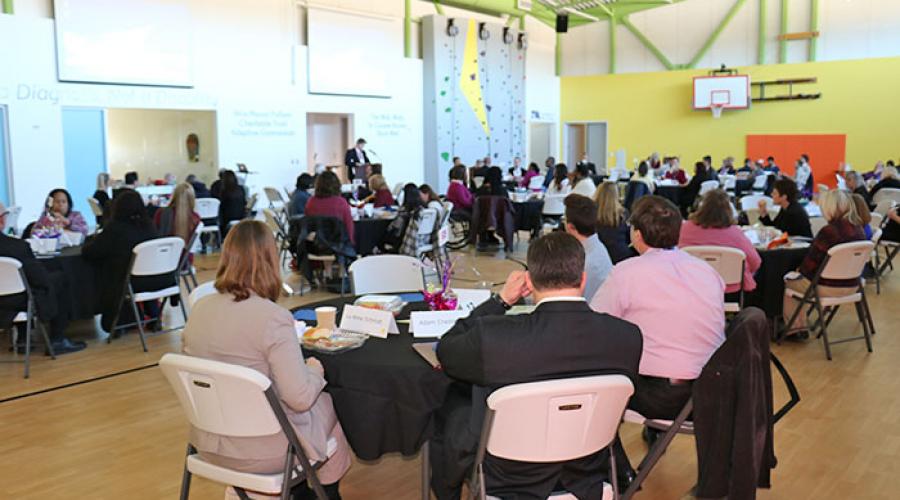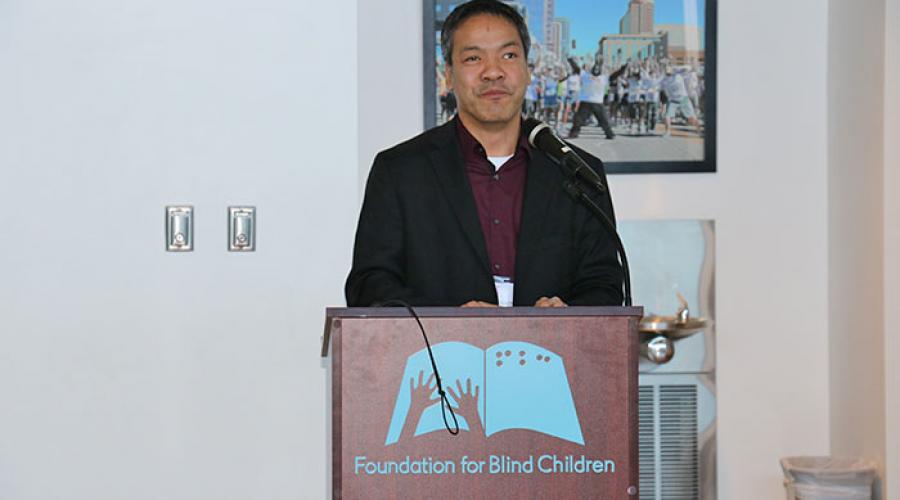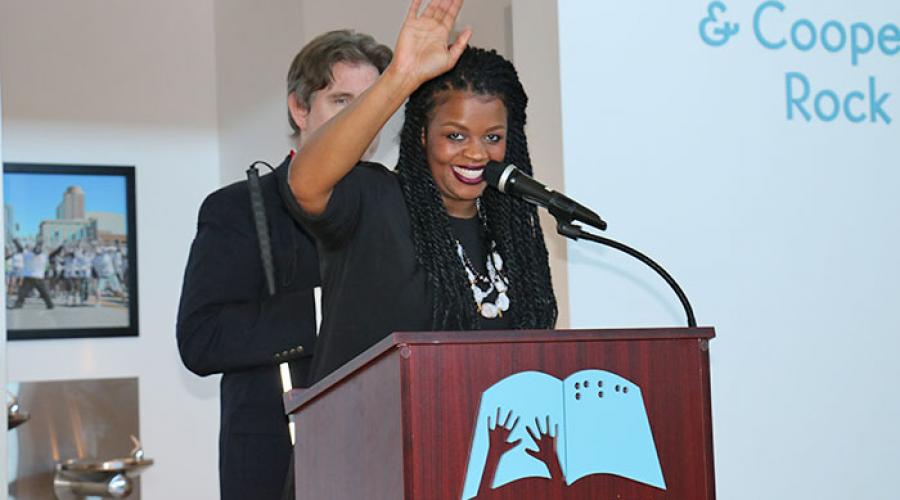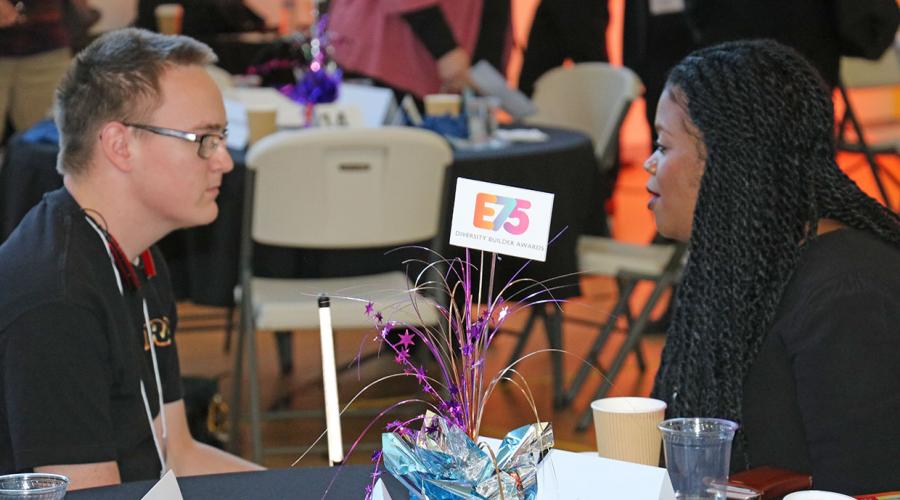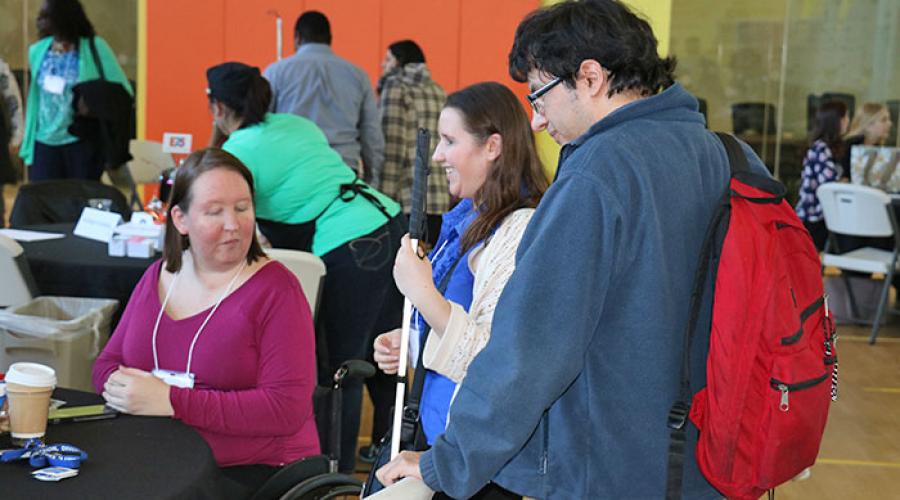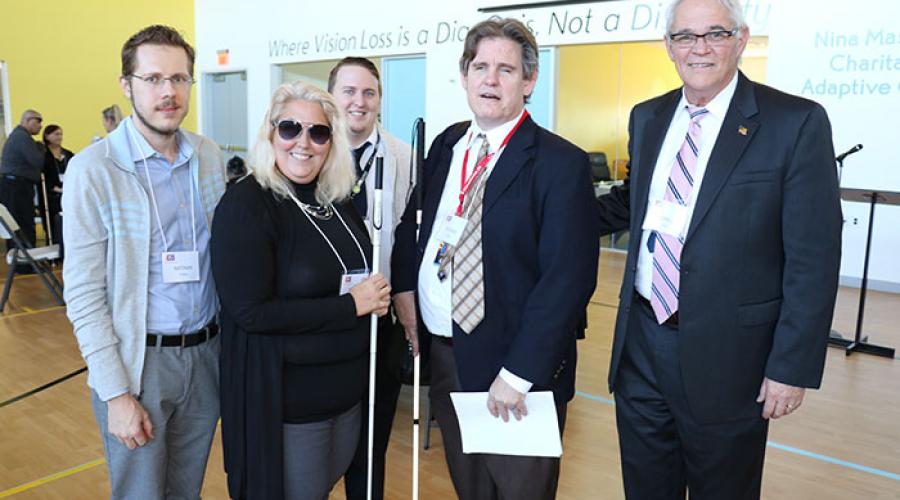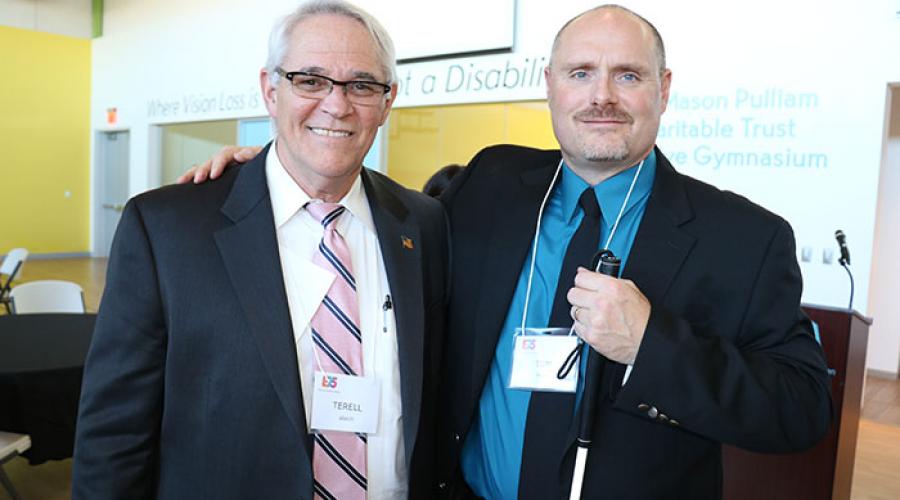E75 – Creating Equal Employment Opportunities for Arizona’s Visually Impaired
Employers can often times be wary about hiring job seekers who are visually impaired – will they need special accommodations? Will they take longer to complete assignments? These valid concerns are common misconceptions members from the Governor’s Council on Blindness and Visually Impairment (GCBVI) and the Arizona Department of Economic Security’s (DES) Vocational Rehabilitation (VR) Program are determined to dispel. On a mission to find sustainable and fulfilling employment for Arizona’s blind and visually impaired, the groups formed the E75 Diversity Builder Awards.
The “E” in E75 represents three powerful words – Eliminate, Employ and Empower. The “75” represents the national average percentage of unemployed individuals who are visually impaired.
Eliminate represents the group’s goal to remove the stigma of what it means to hire an individual who is visually impaired. The group wants to:
-Eliminate the excuses from both employers and job seekers who are visually impaired.
-Eliminate the high unemployment rate of those who are visually impaired.
-Eliminate the barriers that job seekers who are visually impaired encounter on their journey to employment.
-Eliminate the myths of what it’s really like to be visually impaired.
Employ quite literally represents the push to hire individuals who are visually impaired by extending the same opportunities given to all others in the workforce. The groups encourage employers to offer competitive openings to this demographic, not hand-outs or less desirable positions.
Empower encourages job seekers who are visually impaired to take the chance to compete for their dream job. The goal is to:
-Empower individuals to utilize resources available to them through programs like DES’ VR, the VA Healthcare System, and the Foundation for Blind Children.
The E75 2nd Annual Diversity Builder Awards were recently presented to local organizations that employ Arizonans who are visually impaired. Employers who received recognition include, Valley Metro, Cyracom, Peckham, the Arizona Secretary of State’s Office, and Tucson Electrical Power.
Luncheon guests heard from keynote speaker and blind engineer for LinkedIn, Jennison Asuncion.
Asuncion, an advocate for equality in the workplace, recommends employers look beyond a visually impaired candidate’s lack of work history and remember that it might be a result of the low employment rate for this demographic. Instead, he suggests that employers give candidates a shot based on their volunteer history and skills.
“We too, want that white picket fence. We want to support our families and travel. Just give us the chance to work for you,” implored Asuncion.
GCBVI member, Thomas Hicks, views the E75 initiative as a recipe for success. “Sorry to break it to you,” joked Hicks, “but we’re not superior listeners or incredible musicians. Just because you go blind doesn’t mean that you’re instantly Ray Charles.”
“If we eliminate the barriers, the myths, the stigmas and the excuses then they [job seekers who are visually impaired] will participate in the workforce and feel empowered,” said Hicks.
Although, Hicks points out this number can vary depending on where you live. “It might be 100% unemployed [visually impaired] in certain areas,” explains Hicks, referring to rural areas and locations with less opportunities.
Hicks, who lost his vision serving our country as a captain in the U.S Army, found himself underemployed and frustrated. Even with a master’s degree, he faced many barriers in his quest to secure quality employment. In an attempt to make ends meet, he took a job that paid $8 per hour.
“It took me a month to get my first paycheck and it was only $500,” said Hicks. “I went into the men’s bathroom and just cried. How was I going to support my family on that income?”
Hicks, along with the GCBVI and DES are working to raise awareness of this underemployed group of people. Their hope is that their message is heard throughout the country and that 20 years from now, the visually impaired are no longer faced with the same barriers many of them have experienced.
“They [visually impaired job seekers] will feel good about themselves and be able to achieve that American dream and support their families if they can work,” said Hicks. “We spend a third of our lives working, and a third of our lives sleeping. That means that a third of their lives, they [unemployed visually impaired individuals] are feeling disconnected and like they are not participating in the world around them.”
For additional information about the DES Vocational Rehabilitation Program, visit our Rehabilitation Services Webpage.


